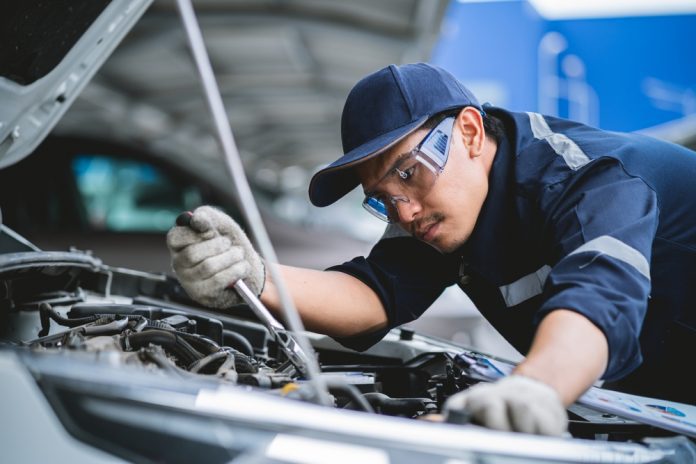Fixed operations were less busy and less profitable in September, a sudden departure from form in what has otherwise been a triumphant year for the service department.
According to Cox Automotive’s Xtime Metrics, service activity declined sharply from August, with both order volume and revenue changing course from their mid-year gains. The number of work requests declined 10.5% month-over-month by the end of September and 4.3% year-over-year. Service departments were thus operating at their slowest pace since this April. Meanwhile, earnings dropped 2% from August, reaching the lowest level since July. However, in its report, Cox Automotive emphasized that fixed operations revenue still remains substantially higher than before the pandemic and actually rose 2.8% from September 2022.
Although these shifts happened to coincide with the start of the United Auto Workers strike, Cox Automotive’s director of product consulting, Skyler Chadwick, believes the two are unrelated. “With the UAW strike against parts and distribution warehouses for General Motor and Stellantis, our initial thought with last month’s decline was a decline driven by part shortages,” he noted. “But the decline in ticket volume was consistent across all brands, which leads us to believe there is no measurable relationship between the declines in September and the UAW strikes.”
While the labor movement’s effects on the automotive industry have yet to make themselves apparent, other factors are definitely taking a toll on the fixed operations business. Interest rates and inflation continue to challenge consumers, forcing many to tighten budgets and potentially delay costly car repairs. With the Federal Reserve adopting a pessimistic stance in recent weeks, drivers are even less likely to spend money.
But even if economic headwinds are indeed to blame, it would be ill-advised to expect these trends to continue in the far future. According to an iSeeCars.com report, consumers are purchasing older vehicles due to rapid appreciation in the used car market. In the coming months and years, this is likely to create an influx of maintenance and repair requests, boosting service department volume. Dealers should thus view September’s slowdown as less of a portent for things to come and more as the calm before a storm of pricey work orders.



